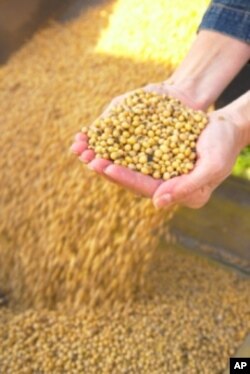Conditions in the world's grain markets today are similar to those during the food price crisis of 2007-2008, according to the head of the U.N. Food and Agriculture Organization.
FAO chief Jacques Diouf tells VOA another food price crisis is possible.
Riots broke out in Kenya and more than 30 other countries in 2007 and 2008 because people could not afford to buy food.
Price crisis
Experts say record high energy prices, growing demand for bio-fuels, low grain reserves and bad weather in producing countries helped push up prices beginning in 2007.
Responding to the high prices, major global exporters have ramped up production. But Diouf says farmers in some of the world's most vulnerable countries have lagged behind. "And these were the countries where we had riots and other problems," he says.
Food prices remain high in many developing countries. And Diouf says the threat of another global price hike persists. Energy prices have not fallen to pre-crisis levels, and crops are still being diverted for bio-fuels. In fact, he says, except for larger grain reserves, not much has changed since 2007.
"All the other factors that led to the price crisis are all here. They have not changed," he says. "So, I think that, if we have -- and I pray that we don't have it -- serious problems of flood and drought in major exporting countries, we're back to square one."
Experts say floods, drought and other extreme weather are becoming more frequent, brought on by climate change.
And the world's population is expected to grow by nearly 50 percent, to 9 billion by 2050. Developing countries will grow the most.
More investment needed
Diouf says many nations are still not investing enough in agriculture.
Last summer in Italy, the G-8 group of industrialized nations pledged $20 billion to help farmers in the developing world expand food supplies.
"All those commitments are not met yet," he says. "So this is where we are."
Diouf says what farmers in many developing countries need is simple: irrigation, improved storage facilities, help with fertilizers and high-quality seeds to improve yields.
Without those investments, he says, the world risks another food crisis, and the hunger and instability that go along with it.








